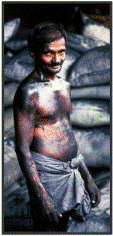Human Trafficking, Interdisciplinary Conference on

Annual Interdisciplinary Conference on Human Trafficking: 6th (2014)
Date of this Version
9-2014
Document Type
Article
Abstract
This study is the fifth in a series of studies conducted by Love146 in collaboration with partnering organizations that explores the little-known lives and experiences of sexually exploited males and male-to-female transgender persons (from here on referred to as “transgender persons”) in Southeast Asia. It is a part of a small, collaborative movement among interested organizations who have both recognized and acted upon the neglect of males and sexual minorities in discussions of sexual abuse and exploitation. While the vulnerability of women and girls continues to be the subject of much research and a key concern among social service providers, few attempts have been made to understand the vulnerabilities and lived experiences of Cambodian transgender persons in the sex industry. Among the minimal studies that have been conducted, nearly all have solely focused on their sexual health and their likelihood to contract or spread HIV/AIDS, while often ignoring the existence of other potential vulnerabilities. This study attempts to provide a baseline of data to better understand the lives of Cambodian transgender persons in the sex trade industry, utilizing both quantitative and qualitative research methodologies and merging careful fieldwork and extensive, one-on-one structured interviews. This baseline of data is intended to be used as a resource for social service providers and future researchers who hope to provide useful and informed intervention strategies for transgender persons desiring alternatives to sex work. The research finds a particularly high vulnerability for physical abuse and sexual violence among transgendered sex workers in Phnom Penh, as well as strong stigma and discrimination coming from family members and peers. Seventy two percent of the interviewees reported migrating to Phnom Penh, 88% of them in search of work and 12% due to family issues. For nearly half of the respondents sex work was their primary source of income. Discrimination experienced by the respondents took on a number of forms: loss of employment (39%) and housing (20%), denial of education (12%) and health services (10%), and physical and sexual harassment (72%). Over half of those interviewed mentioned the police as primary source of stigma and discrimination. Besides leading to a high rate of discrimination, their gender identity also lead to feelings of selfblame, shame, and guilt, as cited by around half of the respondents. In analysis of the gathered data, the study discusses a seemingly inherent fatalism that is observed within transgender social identity and the impact that this may have on their perception of alternative employment and options for the future. Additionally, the study attempts to unpack some of the ways in which exploitation can be derived from self-identity, and how the formation and adoption of exploitive self-identities can make transgender groups in this cultural context uniquely vulnerable. The authors of this study aim to provide a broad baseline of data that is descriptive of the holistic needs and vulnerabilities of transgendered persons working in the sex industry in Phnom Penh. It is hoped that such a survey will allow for a deeper understanding of such groups, including their trajectory into the sex work and potential alternatives. Additionally, this study aims to aid in the development of programming and social services that meet the needs of such groups holistically, looking beyond gender expression and social identity to address human needs and vulnerabilities that may often go overlooked.
(71 pages)


Comments
Copyright 2014 Love 146.